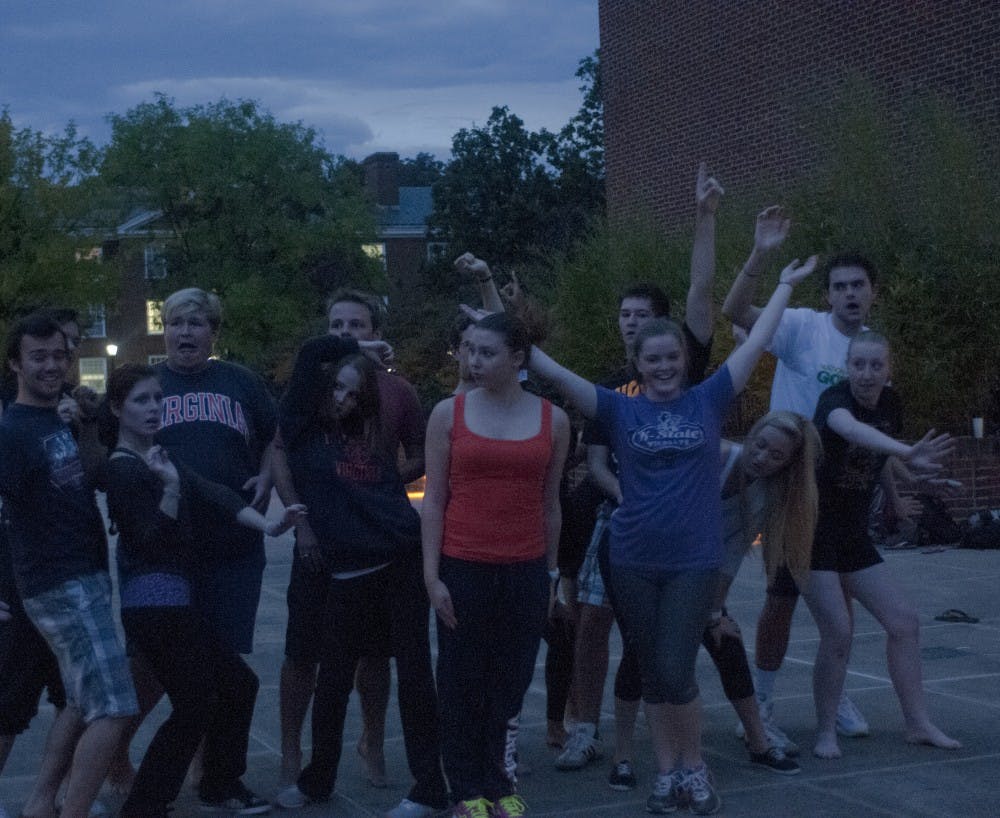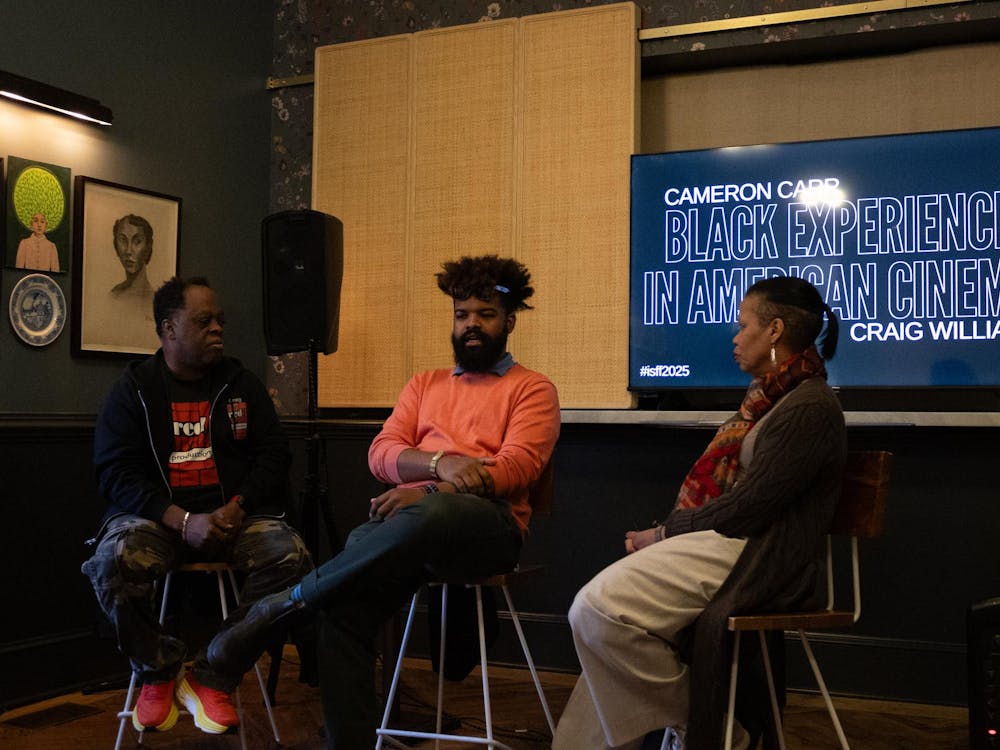A new administrative policy on academic space reservations has performing arts CIOs up in arms, as scores of theatre directors and a cappella group leaders scramble to find available spots for rehearsals.
Before this semester, performing arts groups like Shakespeare on the Lawn, Spectrum Theater and the First Year Players have relied upon classrooms for their daily practices, which often involve choreographed dancing, theatrical blocking and elaborate staging. A cappella groups and dance performance clubs that lack departmental affiliation have also long taken advantage of the acoustics and convenient size of academic spaces in order to effectively rehearse.
At the start of the semester, however, the administration introduced game-changing policies that have already altered the practices of most arts groups on Grounds.
“We are now limited to ‘non-academic spaces,’ which includes rooms in Newcomb, Ern Commons and the SAB,” said second-year College student Rachel Mink, the president of Hoos in Treble and chair of the A Cappella President’s Council. “Unfortunately, the rooms in Newcomb are much too small to hold 15-18 people for three hours of rehearsal, while rooms like Ern Commons and the SAB are much too big for our rehearsals.”
For theatre groups like First Year Players, these spatial limitations have proven all the more frustrating.
“Currently, the main spaces that we are allowed to use are decent rehearsal spaces,” said fourth-year Education student Chelsea Marcelin, the producer of FYP. “However, they are also used for other events. FYP is a large organization that generally utilizes our entire space, so without spaces provided by the University, it is difficult to find a last-minute alternative that will fit our needs.”
According to Assistant Dean of Students Marsh Pattie, the space limitations are a response to a number of recent concerns about using academic buildings for rehearsals.
“The Provost’s Office has expressed concern that classes are being disrupted by the heightened sound levels of rehearsing groups,” Pattie said. “In addition, our understanding from them is that several of the academic spaces were not built to accommodate performance type activities, and the impact on furniture and equipment has been significant.”
Pattie said the Provost’s Office has control over academic spaces.
“The Provost’s Office does allocate some academic space to us for student activities, but they have the ability to limit that space at their discretion, which is what has occurred in this situation,” Pattie said. “Our student activity spaces remain available to all performance groups, yet we recognize there are many groups and a finite amount of space. It is a classic issue of supply and demand.”
Some arts leaders have also expressed concern about the late notice of the policy changes. Groups were not told about the changes until after the semester had already started, Mink said.
“Because of this late notification and overt simplification of the situation during the meeting itself, performing arts groups had no time to claim non-academic spaces over the summer,” she said. “The biggest problem here is there are so many performing arts groups who need space to rehearse — from small a cappella groups to big theatre troupes — and now we are left competing with each other for space.”
For other performing arts groups, particularly dance troupes, the policy change has only highlighted a pre-existing shortage of suitable rehearsal spaces. Dance groups, specifically, require hardwood floors and mirrored rooms for many of their practices.
“There are over 23 dance/performance organizations at U.Va., … [creating] high demand for all academic and gym spaces that [have] mirrors,” according to a petition started on SpeakUp U.Va. “The high demand for mirrored spaces and increased restrictions for rehearsal spaces only reinforces the shortage of mirrored space shortage.”
Mink said the recent policy change indicates a lack of appreciation for the arts on the part of the administration.
“This policy shows a deeply rooted problem the University has always had: a severe miseducation and depreciation of the arts,” Mink said. “The policies regarding performing arts CIOs show not only the administration’s lack of understanding about arts groups themselves, but also lack of research into the consequences of this new policy.”
The administration, however, believes a successful compromise is possible.
“I met recently with a number of student leaders representing these groups and am very supportive of finding a solution that will address their needs,” Pattie said. “We continue to engage the Provost’s Office in a dialogue around this issue since academic space must be part of the solution.”
Some performing arts group leaders seem to share in this sentiment.
“I do not think the administration thought all the way through the effect this new policy might have on musical and performance CIOs,” said fourth-year College student Taylor Luckey, the president of the Virginia Belles. “But once they were made aware of the problem they seemed very receptive and I am sure that they will do what they can to resolve the issues.”
Nevertheless, to many students with a passion for the arts, the outlook is less cheery.
“It is truly disheartening to see the arts on Grounds marginalized so publicly,” Mink said. “And this new policy may constitute a permanent change in the University’s attitude toward performing arts groups. The performing arts seem to be moving down another rung on the University’s totem poll.”
A petition posted Sept. 20 on SpeakUp U.Va. that aims to reinstate the use of academic spaces for performance groups had garnered more than 1,500 votes as of press time.







